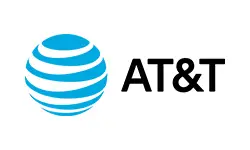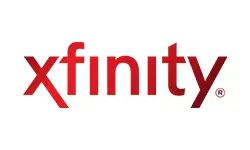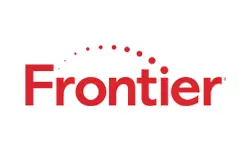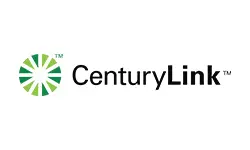Popular Fiber Internet Providers Plans
Fastest Speeds

Monthly Cost
$55.00 and Up
Connection Type
Fiber
Download Speed
0.8 Mbps – 940 Mbps
Bundles
Internet and TV
Hybrid Provider

Monthly Cost
$45.00 and Up
Connection Type
Fiber
Download Speed
50 Mbps – 2000 Mbps
Bundles
Internet, TV, Phone or Home Security
No Equipment fees

Monthly Cost
$49.00 and Up
Connection Type
Fiber
Download Speed
Upto 2000 Mbps
Bundles
Internet, TV, Phone
No-Contract Plans

Monthly Cost
$49.00 and Up
Connection Type
Fiber
Download Speed
Upto 2000 Mbps
Bundles
Internet, TV, Phone
Fiber Optic Internet Providers in the USA
Fiber internet is regarded as the gold standard for both residential and business internet connections, offering faster download and upload speeds up to 1000 Mbps or even more. While speed and stability are the primary advantages of fiber internet, its installation can be costly and time-consuming, leading to limited availability in certain areas. However, several fiber internet providers have emerged as the best of the best, including AT&T Fiber, Frontier Fiber, Google Fiber, Check with Gigabit Fiber Optic Internet, Windstream Kinetic, and Ziply Fiber, each offering unique pricing, speed tiers, and availability based on location. Fiber-optic internet is a superior technology that provides faster and more reliable internet connectivity and a better experience for users who require high bandwidth for downloads and uploads, which is beneficial for larger families, students, businesses, and telecommuters.
What is fiber internet?
Fiber internet is a type of internet service that uses fiber-optic cables to transmit data. This advanced technology has the ability to reach speeds of up to 940 Megabits per second (Mbps) with low lag time, making it the fastest and most reliable form of internet available today. Unlike traditional copper cables, fiber-optic cables can send data as fast as about 70% the speed of light, which is why it's ideal for multiple users to connect several devices at once.
| Fiber Internet Provider | Speed Range | Price Range | Call to Order |
|---|---|---|---|
| AT&T Fiber | 1000 Mbps | $49.99 | (844) 905-5001 |
| Xfinity Fiber | 50 Mbps – 2000 Mbps | $45.00 | (844) 339-9555 |
| Frontier Fiber | 50 Mbps – 940 Mbps | $29.99 – $74.99 | (844) 303-0436 |
| CenturyLink Fiber | 100 Mbps – 940 Mbps | $49.00 – $65.00 | (844) 340-6002 |
| Windstream Fiber | 100 - 1,000Mbps | $40 - $70 | (844) 533-1114 |
AT&T Availability
AT&T offers fast and reliable internet services across 21+ states in the US, with a 99% reliability rate. With high-speed plans up to 5-Gig, there are options to suit everyone's needs. However, availability may vary depending on your location, so it's essential to check if you qualify for their services. You can use the AT&T Smart Home Manager app, which is available to AT&T Internet service customers with a compatible AT&T Wi-F1 Gateway, to manage your home network effectively.
Xfinity Availability
Xfinity, the largest cable provider in the United States, currently offers internet services through its hybrid fiber-coaxial network. However, the provider has also been expanding its fiber network and may offer fiber-optic internet in some areas. This service offers faster download speeds, which can reach up to 6 Gbps. Xfinity’s coverage and availability vary by location, so customers should input their zip codes in the coverage map to check the availability of services in their respective areas.
Frontier Availability
Frontier Fiber is available in select locations across the United States, providing customers with lightning-fast, reliable internet speeds. Currently, Frontier offers fiber internet coverage to approximately 16.2 million people, with the most coverage in states such as California, Connecticut, and Florida. As one of Frontier's strengths is its widespread rural availability, customers living in rural areas can still enjoy the benefits of high-speed internet with Frontier Fiber.
CenturyLink Availability
CenturyLink Fiber provides high-speed yet affordable internet to 12.2 million people in select cities across 20 states. Their DSL plans are on par with other providers, while their starter fiber plans should be more than enough for almost everyone. Their gigabit fiber offerings are more suitable for streamers and gamers. However, the speeds vary by location, and the best way to know which plan is being offered is to use their zip search and check with CenturyLink directly to verify availability.
Windstream Availability
Windstream is leading providers of internet services in the United States. The company provides a variety of products and services, including internet, home security, and Voice over Internet Protocol (VoIP) services. Windstream's coverage area includes 18 states, with the greatest coverage in the Midwest and along the East Coast. Windstream's newest service, Kinetic Fiber, provides fiber-optic internet to up to 3.3 million people, making them the ninth-largest provider of fiber internet in the US by overall coverage area.
